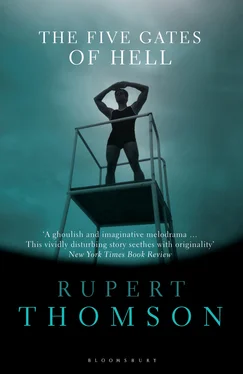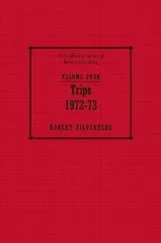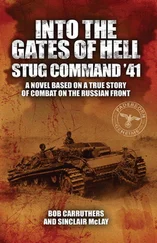Rupert Thomson - The Five Gates of Hell
Здесь есть возможность читать онлайн «Rupert Thomson - The Five Gates of Hell» весь текст электронной книги совершенно бесплатно (целиком полную версию без сокращений). В некоторых случаях можно слушать аудио, скачать через торрент в формате fb2 и присутствует краткое содержание. Год выпуска: 2012, Издательство: Bloomsbury UK, Жанр: Современная проза, на английском языке. Описание произведения, (предисловие) а так же отзывы посетителей доступны на портале библиотеки ЛибКат.
- Название:The Five Gates of Hell
- Автор:
- Издательство:Bloomsbury UK
- Жанр:
- Год:2012
- ISBN:нет данных
- Рейтинг книги:3 / 5. Голосов: 1
-
Избранное:Добавить в избранное
- Отзывы:
-
Ваша оценка:
- 60
- 1
- 2
- 3
- 4
- 5
The Five Gates of Hell: краткое содержание, описание и аннотация
Предлагаем к чтению аннотацию, описание, краткое содержание или предисловие (зависит от того, что написал сам автор книги «The Five Gates of Hell»). Если вы не нашли необходимую информацию о книге — напишите в комментариях, мы постараемся отыскать её.
The Five Gates of Hell — читать онлайн бесплатно полную книгу (весь текст) целиком
Ниже представлен текст книги, разбитый по страницам. Система сохранения места последней прочитанной страницы, позволяет с удобством читать онлайн бесплатно книгу «The Five Gates of Hell», без необходимости каждый раз заново искать на чём Вы остановились. Поставьте закладку, и сможете в любой момент перейти на страницу, на которой закончили чтение.
Интервал:
Закладка:
She gave him a room on the third floor. Walls the colour of eggshell, a row of glass bottles on the mantelpiece, and a bed with springs, as promised. It was a spiritual room, she told him, it had been waiting for him, and standing at the window that evening he could almost believe it. He could see right down the valley. Tomorrow Bay glowed beyond the hills, an orange dome in the dark-blue sky, as if a spaceship had just landed. But the town seemed alien to him now, he felt no pull at all. He would be happy where he was. In the morning he sat down at the kitchen table and she explained how the house worked. All her ‘guests’ paid rent, some in money, some in kind. The old man mended shoes. The woman with the breakdown cooked the meals. And Twilight, well, she’d leave that to his imagination. ‘You choose how you want to pay,’ she said. ‘It doesn’t matter to me.’
He chose to pay in money. That year he was working at Seaview Lodge, a mock-Tudor hotel just off the highway as you headed north out of Tomorrow Bay. The people who stayed there were mostly in their sixties, and they preferred the sun-lounge and the tea-room to the beach. Only the fanatics swam, plunging their bald heads and tumbling flesh into the water at dawn. He arranged the deck chairs and parasols in the morning and folded them away at night. He collected litter on a pointed stick. He raked the sand. There was very little actual lifesaving to be done. He saved an heiress once, and almost wished he hadn’t. A miracle how her cramp disappeared the moment he took her in his arms. ‘He’s a hero,’ she announced to the small crowd that had gathered on the beach, ‘a gen-u-ine hero,’ and insisted on inviting him to dinner that night. Over dessert and coffee she told him about the pool she had at home. ‘It’s inlaid with gold mosaic. You never swam in anything so heavenly.’ And then she offered him a position as her own private lifeguard. Position. She actually used that word. ‘Money’s no object,’ she said. But he turned the offer down, making his excuses with a grace and tact that only served to enhance her admiration.
‘Do you know what she said?’ he told the waitresses later. ‘She said, “Money’s no object,” and do you know what I said?’
They couldn’t guess.
‘I said, “Nor am I.”’
‘You didn’t,’ they said.
He grinned. ‘I wanted to.’
For weeks afterwards the waitresses were always sidling up to him and whispering, ‘Money’s no object.’ The chambermaids teased him too. He was, in any case, a mystery to them. He was open and friendly, but he never focused his attentions on any one of them in particular (unlike his predecessor, who had focused his attentions on five of them, one after the other). They decided he must have some violent, jealous woman in the mountains, and he let them believe it.
The ride home took about forty minutes. He headed west on a slim dark road that arrowed across the coastal plain and up into the hills, where it began to come adrift. No cars suddenly. No light. Only thoughts for company, thoughts that jumped like colts from one piece of ground to quite another piece of ground altogether. The whistle of air in his helmet, the smell of the hot dust cooling. If he reached the top before sunset he would stop and watch the last light leave the ocean, the clouds above sweetening in colour, as if they were slowly being dipped in syrup. Real dreamy, just like India-May had said. The landscape was spoiled only by a pyramid of trash that rose into the sky some distance to the north. This was the municipal dump. Though it was situated five miles out of town, its sweet odour would carry along the beaches when the wind blew in the wrong direction, and had even been known, on occasion, to invade the corridors of Seaview Lodge. By the time he reached the farm, the dogs would be chained up for the night. They knew his bike and didn’t bark. He’d switch his engine off and listen to the black air buzz.
Once inside he’d climb the stairs to his room and close the door and gaze through the window at the sky. Still as deep water. Only the ripple of a car in the valley, a distant aeroplane. He’d lie on his bed under the roof and turn the leather bracelet on his wrist. He’d been given it by an old woman who played the flute. She sat under a palm tree just beyond the hotel fence. Her skin was olive, the colour of slow rivers, her limbs as thin as wire. She always wore the same red plastic raincoat. Every time it rained, which was most afternoons for about fifteen minutes, she played the flute. She always played the same piece. She seemed to have chosen it specially because it lasted the same length of time as the average shower. Sometimes she finished before the rain did, sometimes afterwards, and he’d never forget one afternoon when her last note coincided with the last drop of rain and he heard her laugh in astonishment. She had sounded, in that moment, like a young girl. He had to speak to her. Though all he could say, when he was standing in front of her, was, ‘I’m glad you’re here.’ She reached into her pocket and handed him the leather bracelet, and he put it on right away. He’d worn it ever since. Sometimes it would seem as if the music rose out of the bracelet and, hands linked behind his head, he’d topple slowly into sleep, only to wake later, his arms numb, the moon caught in the window, and all his clothes still on. And voices drifted up from below, no words, just resonances, it was like the murmur of a plucked string, it was the same hum, like being inside an instrument. And sometimes he’d go downstairs and open the kitchen door, his eyes blinking against the sudden light, and he’d join the others in a cup of India-May’s herb tea.
It was on just such a night that he stayed up late and found himself alone with her. She was rolling a joint in her worn fingers.
‘So tell me, Nathan,’ she said, without looking up, ‘what is it you’re running from?’
He smiled. It was the kind of cliché you expected from her, but it was also the one question he’d always been asked and never answered. And so he smiled. Because he recognised it. Because he knew that, this time, he was going to answer it.
He began to talk. He didn’t know where the talk was taking him, he only felt that it was flowing, and knew that things which flowed were clean. And came quickly to one particular night, a night that had always been a secret.
He was sitting out by the pool at home. It was after eleven, a still, warm night. A tree had blossomed near the water, its white flowers breathing a perfume that was like magnolias. A faint click came from behind him. He looked round. Someone was standing on the terrace, a silhouette against the french windows. It was Harriet. She must’ve thought she was alone because she stretched in a way that seemed unfettered, private. Then she noticed him, he could tell because she went motionless, then she pushed herself forwards, hips first, into the moonlight.
She came and sat down beside him. ‘What are you doing out here, Nathan?’
‘Oh, just sitting,’ he said, ‘thinking.’
‘That’s the trouble with you. You think too much.’
He laughed softly. Maybe he did. But it was kind of ironic, really. He wouldn’t’ve spent half as much time thinking if she hadn’t been around.
‘I thought you were in bed,’ he said.
‘I stayed up to watch a show on TV.’
‘Any good?’
‘It was just a show. You know, music and dancing.’
She’d thrown the words out lightly into the darkness. But there was a wistfulness, a nostalgia. He remembered a letter that she’d written to Dad. Something about being tired of the bright lights. Even back then he’d thought it sounded strange; she was only twenty-one, after all.
‘Where’s Dad?’ he asked her.
Читать дальшеИнтервал:
Закладка:
Похожие книги на «The Five Gates of Hell»
Представляем Вашему вниманию похожие книги на «The Five Gates of Hell» списком для выбора. Мы отобрали схожую по названию и смыслу литературу в надежде предоставить читателям больше вариантов отыскать новые, интересные, ещё непрочитанные произведения.
Обсуждение, отзывы о книге «The Five Gates of Hell» и просто собственные мнения читателей. Оставьте ваши комментарии, напишите, что Вы думаете о произведении, его смысле или главных героях. Укажите что конкретно понравилось, а что нет, и почему Вы так считаете.












